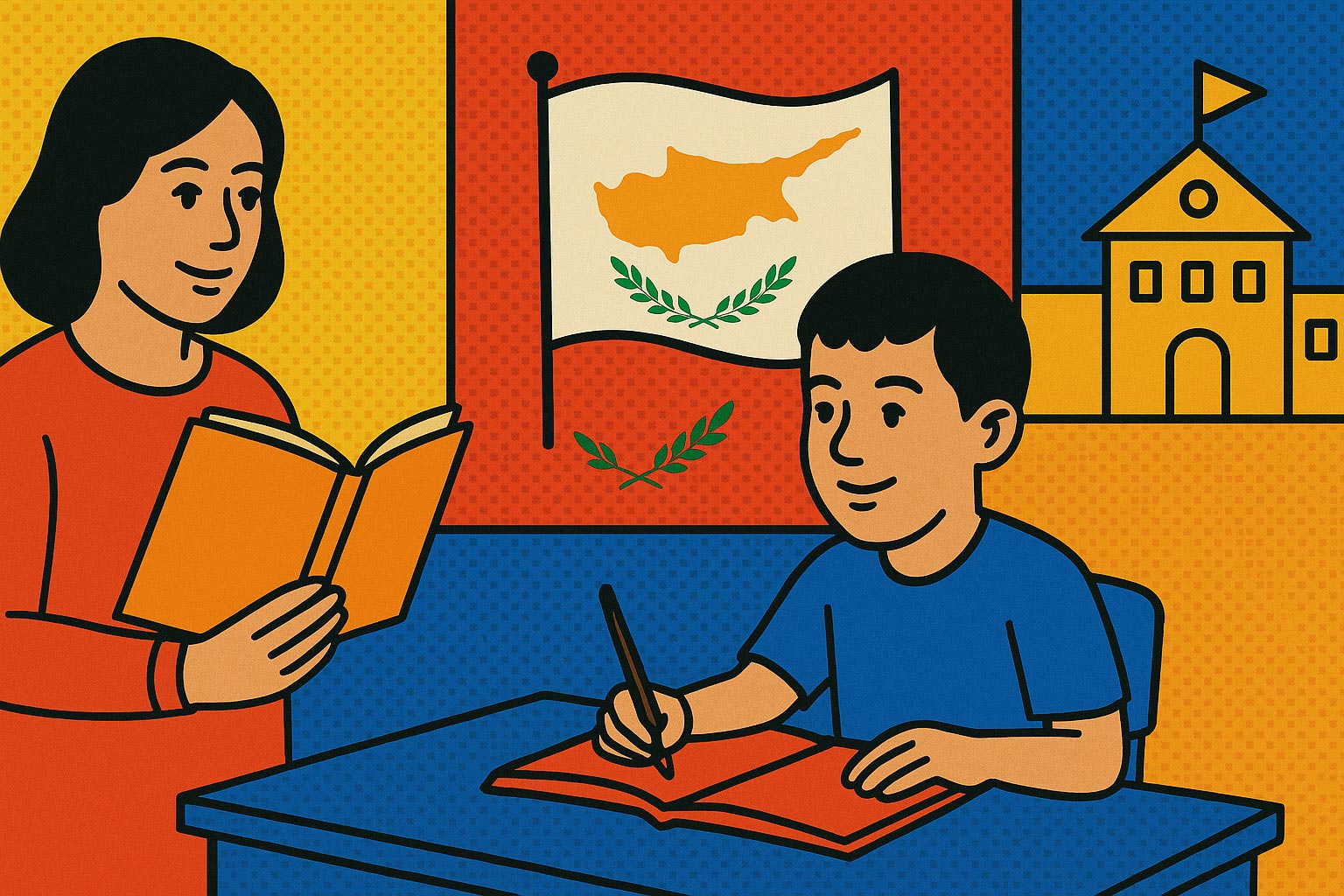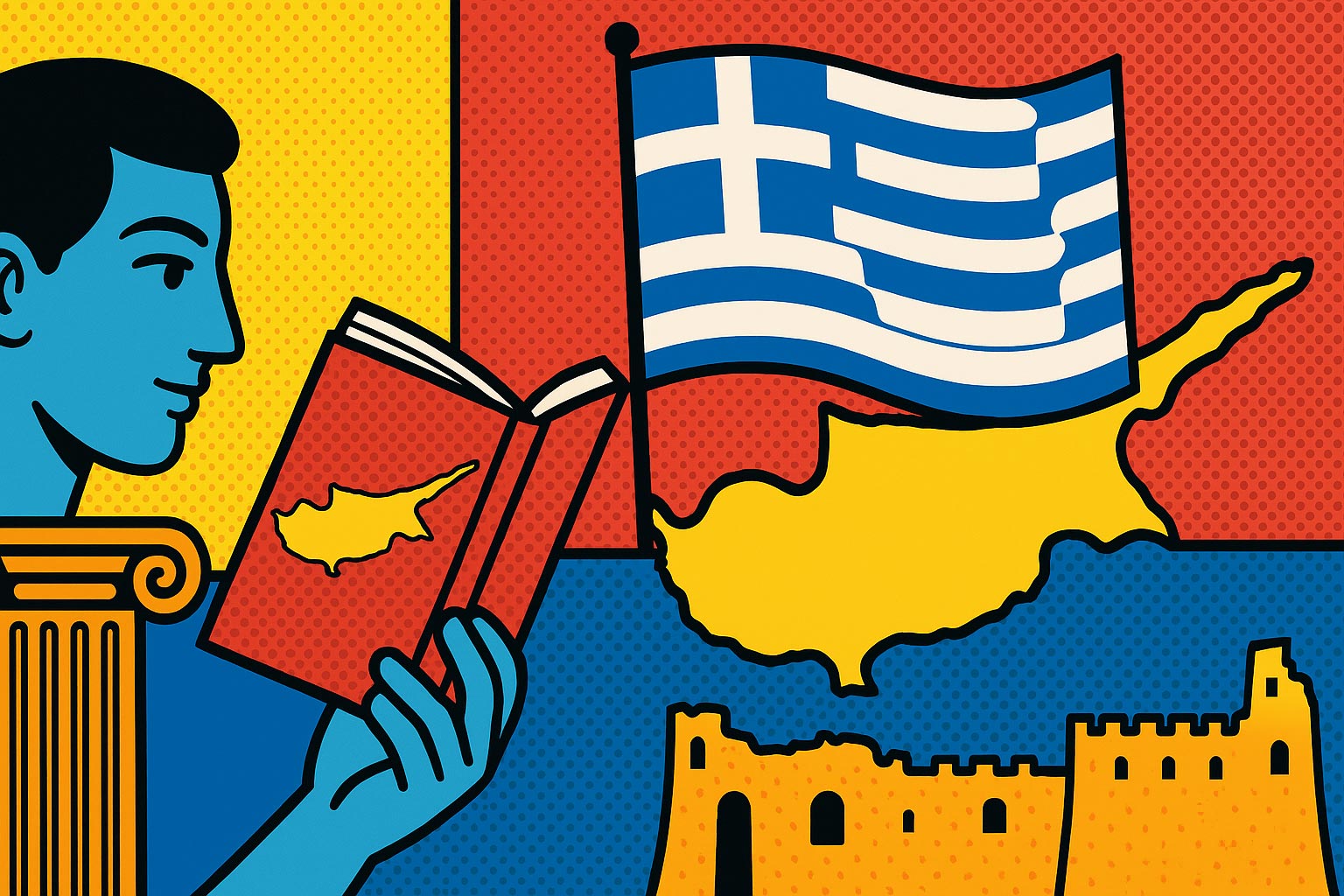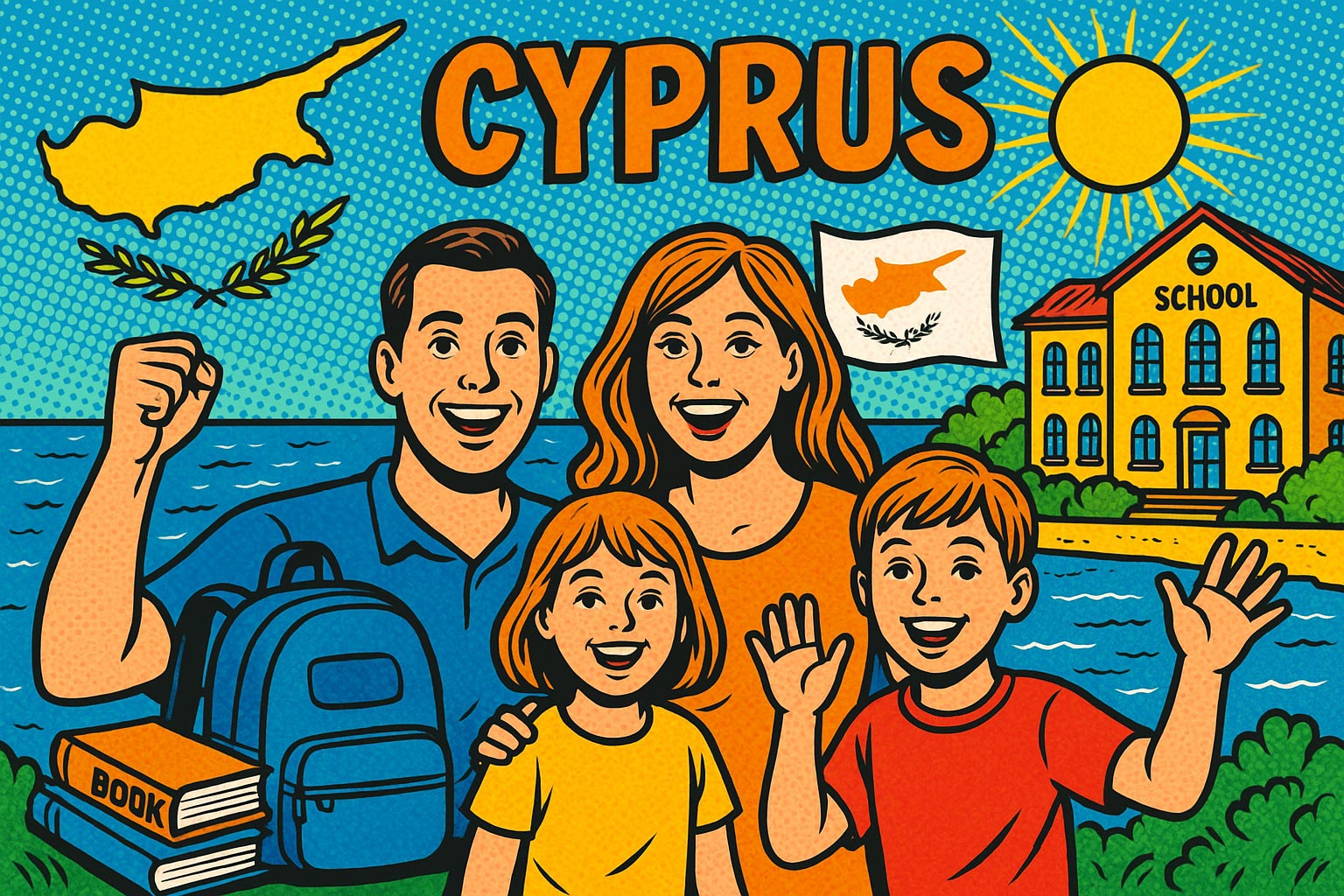- 1. Understanding the Legal Framework for Homeschooling in Cyprus
- 2. Why Do Families Consider Homeschooling in Cyprus?
- 3. Alternatives to Homeschooling: Exploring Alternative Schools in Limassol
- 4. Financial Considerations: Private School Fees Cyprus Families Face
- 5. The Practical Reality of Education at Home in Cyprus
- 6. Special Considerations for Families: Socialization and Support Networks
- 7. Emerging Trends and Policy Discussions Around Homeschooling in Cyprus
- 8. Navigating Your Child’s Educational Journey: Weighing Homeschooling and Alternatives
- 9. Making Sense of Education: Final Thoughts on Homeschooling and Alternatives in Cyprus
- 10. Frequently Asked Questions
- 11. Author
In recent years, the concept of education has evolved significantly beyond traditional classroom settings. Among the many options available to families in Cyprus, homeschooling has emerged as a subject of interest and debate. Parents increasingly seek more flexible, personalized methods for their children’s schooling, motivated by concerns over curriculum rigidity, social environment, or the desire to balance education with family priorities. Yet, key questions remain: What does the homeschooling Cyprus law actually permit? Is education at home a recognized and legal choice? And if homeschooling is limited or restricted, what alternatives exist, especially in urban centers like Limassol, where alternative schools appeal to many families?
This article examines the legal framework surrounding homeschooling in Cyprus, explores educational alternatives, and provides a clear overview of private school fees Cyprus families might expect when weighing their options. By understanding the specifics, families can make informed decisions about schooling that best suit their values and circumstances.
Understanding the Legal Framework for Homeschooling in Cyprus
Homeschooling as a formal educational choice is largely constrained in Cyprus due to the national legislative environment. The homeschooling Cyprus law is complex, lacking explicit provisions that fully endorse or regulate the practice of education at home. The dominant model is centralized schooling under the Ministry of Education and Culture, which oversees public and private institutions, curriculum standards, and school attendance policies.
Parents who wish to homeschool must navigate a system that does not directly recognize homeschooling as a separate educational track. The compulsory schooling age in Cyprus extends from 5 to 15 years, during which time attendance at an accredited school is compulsory under the Education Law. This legislation mandates registered schooling and prescribes penalties for non-compliance.
Given this, homeschooling in Cyprus remains a legally ambiguous practice rather than an officially sanctioned educational alternative. Parents enforcing education at home often find themselves without clear governmental guidelines or support, making it a challenging path. While some families opt for a form of informal homeschooling, the lack of recognition means that children educated this way may face difficulties when entering mainstream educational institutions or pursuing university admission.
Cyprus law does not explicitly recognize homeschooling as an official mode of education, making fully home-based schooling legally complex and largely unsupported.
Compulsory School Attendance and Parental Responsibilities
The compulsory attendance regulations require that children attend a recognized school, either public or private. The law requires families to enroll their children at approved educational institutions. This legal framework reflects the government’s emphasis on standardized schooling as a means to ensure consistent quality and social integration.
Parents who choose to educate their children at home remain responsible for fulfilling the educational standards indirectly by registering with an accredited school, such as private international schools, or engaging tutors who might provide supplementary education. However, even this option necessitates formal affiliation with some recognized educational entity, as entirely non-institutional education is generally not accepted.
Attempts to formally register homeschooling programs are usually met with requirements for regular assessments, inspections, or compulsory participation in public exams to ensure learning standards. There is no official homeschooling registration system comparable to those in countries like the United States or the United Kingdom.
Why Do Families Consider Homeschooling in Cyprus?
Despite legal constraints, a number of families express interest in homeschooling as a means of providing personalized education aligned with their values, learning styles, and lifestyle needs. The appeal of education at home centers around flexibility, the opportunity to build a custom curriculum, and the desire to increase family involvement in their children’s formative years.
Several motivating factors drive families toward homeschooling in Cyprus, even without clear legal acceptance:
- Adaptability to Individual Learning Needs: Traditional schooling may not address special learning requirements, whereas homeschooling allows highly customized instruction.
- Preservation of Cultural or Religious Values: Some families seek education that emphasizes particular cultural traditions or religious beliefs.
- Negative Experiences in Traditional Schools: Bullying, academic pressure, or dissatisfaction with school policies may encourage parents to look elsewhere.
- Travel and Lifestyle Flexibility: For families with frequent relocations or international careers, homeschooling provides continuity in education.
- Strong Family Bonds: Education at home can strengthen family interaction and instill values closely aligned with parental aspirations.
For many families, homeschooling in Cyprus represents a desire for greater control over the schooling experience and alignment with their unique educational goals.
Alternatives to Homeschooling: Exploring Alternative Schools in Limassol
Given the legal uncertainties surrounding homeschooling, many families in Cyprus seek viable alternatives that offer flexibility and personalized learning without running afoul of compulsory school attendance laws. Limassol, as one of the largest cities with a diverse international community, hosts a growing number of alternative schools that provide innovative approaches to education.
Alternative schools in Limassol typically combine engaging curricula with supportive teaching methods that differ from rigid public school models. These institutions often appeal to families seeking a balance between structure and flexibility, integration of multicultural perspectives, and a nurturing environment.
Some of the most common types of alternative schools in Limassol include:
- International Schools: Offering curricula such as the British GCSE/A-Levels, International Baccalaureate (IB), or American standards, these schools cater to expatriates and locals alike, ensuring alignment with global education standards.
- Montessori and Waldorf Schools: Emphasizing child-led, experiential learning with a focus on creativity and practical skills.
- Language Immersion Schools: Schools that focus on bilingual or multilingual education, valuable for globally connected families.
- Private Independent Schools: Smaller institutions that may combine classical education with modern technologies and personalized attention.
Families considering these schools must be mindful of private school fees Cyprus families typically face, which vary considerably depending on the prestige, curriculum, and facilities. Alternative schools often provide competitive options to public schools, but the cost remains an important consideration.
| Type of School | Approximate Annual Fees (€) | Curriculum Offered | Key Characteristics |
|---|---|---|---|
| International British School | 8,000 – 15,000 | British GCSE & A-Level | Structured, globally recognized curriculum |
| Montessori School | 5,000 – 10,000 | Montessori Method | Child-centric, experiential learning |
| Waldorf School | 6,000 – 11,000 | Waldorf Education | Focus on creativity and holistic development |
| Bilingual Language School | 7,000 – 12,000 | Multilingual Curriculum | Emphasis on language proficiency |
Alternative schools in Limassol provide structured, yet innovative, schooling options that bridge the gap between traditional schooling and homeschooling desires.
Financial Considerations: Private School Fees Cyprus Families Face
One of the main deterrents for families considering a move away from public education is the cost. Private school fees Cyprus residents encounter can vary widely depending on the nature of the institution, curriculum standards, facilities, and extracurricular offerings.
Understanding the financial commitment is crucial when weighing schooling options because it impacts family budgets and, by extension, decisions around whether education at home is feasible or whether alternative schooling fits within financial means.
Generally, private school fees in Cyprus can range from moderate to high, particularly for international and alternative schools in metropolitan areas like Limassol. Apart from annual tuition, families may need to account for admission fees, uniforms, extracurricular activities, transportation, and school supplies.
Families moving from homeschooling plans to enrolling their children in alternative schools should consider the following financial aspects:
- Whether fees are charged per term or annually
- Additional costs for examination preparation and certification
- Scholarship opportunities or sibling discounts
- The potential necessity of supplementary tutoring or private lessons
Balancing cost against benefits is a complex task. While homeschooling might reduce direct tuition expenses, indirect costs like learning materials, time investments, and private support can accumulate.
Private school fees are a significant factor for Cyprus families, influencing many decisions about schooling and education at home.
The Practical Reality of Education at Home in Cyprus
Despite the legal ambiguity, many families strive to implement education at home in a practical, hybrid manner. This approach usually combines partial attendance in conventional schools with home instruction in specific subjects, enhancing or supplementing schooling rather than fully replacing it.
Families engaged in this form of education at home often seek flexible arrangements such as part-time enrollment in schools or distance learning options. Some opt to use international online curricula that allow children to learn independently with occasional evaluations, aligning with foreign educational standards.
In practice, education at home in Cyprus is more successful when connected to official schooling or academic programs. This hybrid method ensures children maintain accreditation, access standardized assessments, and avoid legal complications.
Key points for families choosing this Athenian approach to homeschooling include:
- Establishing clear study schedules and learning goals
- Maintaining regular communication with affiliated schools or tutors
- Leveraging technology for coursework and global learning communities
- Documenting progress and work samples for assessment purposes
Successful education at home in Cyprus often involves hybrid models where home instruction complements recognized schooling to meet legal and academic requirements.
Special Considerations for Families: Socialization and Support Networks
One of the most commonly cited concerns regarding education at home is the social development of children. In Cyprus, where homeschooling lacks formal support, ensuring socialization becomes a critical challenge for families opting out of traditional school environments.
Social development hinges on interactions with peers and engagement in community activities. For homeschooling families, creating opportunities for group learning, sports, arts, and social engagement requires proactive planning.
Many families join informal homeschooling cooperatives or seek out extracurricular clubs focused on arts, sports, and STEM activities. These groups provide necessary social frameworks while supporting educational objectives.
Support networks for homeschooling families in Cyprus are emerging but remain limited compared to countries with established homeschooling traditions. Parents often rely on online forums, expatriate communities, or private tutors to bridge the gap.
In Cyprus, families practicing education at home must deliberately cultivate social opportunities to foster their children’s holistic growth.
Emerging Trends and Policy Discussions Around Homeschooling in Cyprus
Given the increased interest among families in alternative education methods, the topic of homeschooling in Cyprus has begun to appear in public discourse. However, there has yet to be significant policy movement toward formal recognition or regulation.
Advocates argue for clearer legal pathways, quality assurance mechanisms, and government support to enable homeschooling families to operate without fear of penalties or educational disadvantage for their children. Opponents raise concerns about educational standards, child welfare, and social cohesion.
In the meantime, families who are committed to homeschooling must navigate an informal, personal legal framework while accessing alternative schools or private tutoring where possible. The educational landscape in Cyprus remains predominantly school-centric, but change may come as parental demand grows alongside global trends.
The future of homeschooling in Cyprus depends on legislative developments and societal acceptance, which are evolving gradually but remain tentative.
Choosing the best educational pathway in Cyprus is not a decision taken lightly by families. The lack of clear homeschooling legislation limits the viability of exclusive education at home, often pushing families toward established private or alternative schools that meet compulsory education laws.
Decision-making involves careful consideration of legal requirements, educational goals, financial resources, and family lifestyle. Those committed to family-centered education may pursue hybrid models that blend formal schooling with home instruction, while others may look toward innovative alternative schools capable of providing personalized learning within the legal framework.
Regardless of the path chosen, it is essential for families to maintain awareness of educational standards, social development needs, and long-term educational outcomes. Staying informed about regulatory changes and available educational options supports proactive planning.
Your child’s educational success in Cyprus depends on balancing legal compliance, educational quality, and family values through informed choices.
Making Sense of Education: Final Thoughts on Homeschooling and Alternatives in Cyprus
The landscape of schooling in Cyprus, particularly concerning homeschooling, remains a complicated and nuanced issue. While education at home presents an attractive option for many families seeking autonomy and customization, the homeschooling Cyprus law does not provide a clear legal framework for it. This absence effectively limits homeschooling as a fully recognized alternative, requiring families to comply with compulsory school attendance by enrolling children in public or private institutions.
Fortunately, the expansion of alternative schools in Limassol and other cities offers families diverse options that reflect modern educational philosophies without compromising legal standards. Private school fees Cyprus families encounter may be high, but these schools offer structured environments that incorporate personalized learning, international curricula, and supportive community networks.
For families currently or considering education at home, hybrid approaches that combine formal enrollment with supplementary home instruction can provide a balanced and legally sound solution. Engaging with social activities, educational cooperatives, and online resources can also help meet the broader developmental needs of children.
Ultimately, navigating education in Cyprus requires a well-informed approach balancing legal realities, financial considerations, and the desire for a quality, family-oriented schooling experience. As public awareness and parental demand evolve, so too may policies addressing homeschooling—a development families should watch closely to expand their future options.
Cyprus families face a challenging but navigable educational landscape, where careful planning and understanding unlock pathways tailored to each child’s needs within existing law.
Frequently Asked Questions
- Is homeschooling legal in Cyprus?
Currently, homeschooling is not officially recognized under Cyprus law. The Education Law requires children to attend recognized schools, making exclusive homeschooling legally complex. - Can I register my child as a homeschooler?
No official system exists for registering as a homeschooler in Cyprus. Parents must enroll children in recognized institutions to comply with compulsory education laws. - What alternatives exist if I cannot homeschool legally?
Families can enroll children in private, international, Montessori, Waldorf, or bilingual schools, especially in cities like Limassol which offer diverse alternative school options. - Are there hybrid options combining homeschool and formal education?
Yes. Many families use a hybrid approach by enrolling children in schools for some subjects or assessments and supplementing education at home. - How much do private schools in Cyprus typically cost?
Private school fees vary but often range from approximately €5,000 to €15,000 per year depending on the school type, curriculum, and facilities. - What socialization options are available for children educated at home?
Families often rely on homeschooling cooperatives, online groups, extracurricular clubs, and community activities to ensure social development. - Is there any movement toward legalizing homeschooling in Cyprus?
Discussions regarding homeschooling legislation are ongoing, but no formal policy changes have yet been enacted to broadly legalize or regulate education at home.


